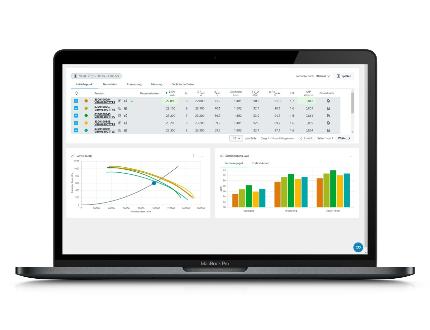
The strategy includes plans to boost the energy efficiency of buildings, improve linkages between electricity systems and district heating systems, which aims to greatly increase the use of renewable energy, and encourage reuse of waste heat and cold generated by industry. Long-term, Europe wants to decarbonise its building stock by 2050.
It is estimated that industry could reduce its energy consumption by 4 to 5 per cent in 2030 and 8 to 10 per cent in 2050 just by implementing commercially viable and available solutions.
The share of renewable energies would reach 30 per cent and breakthrough technologies would help industries to decarbonise while making production processes 30 to 50 per cent less energy intensive.
Key to this is a series of mandates for current and future building stock, including the development of a toolbox of measures to ease the renovation of multi-apartment buildings, eg through modern heating and cooling equipment (such as heat pumps), insulation materials and advice on the steps to follow.
Better cost-sharing can allow both tenants and owners to benefit from the investment spent to renovate old buildings and apartments, or to change their old obsolete heating systems with new efficient ones using renewable energy sources or heating sourced from smart new generation district heating networks.
Another core driver for improving building efficiency will be strengthening the reliability of energy performance certificates, which will be assessed in the upcoming review of the Energy Performance of Buildings Directive.
This will allow providing clear information for consumers and investors in the use of renewable energy in buildings and create market signals for a more widespread use of renewable energy in the buildings.
Furthermore, increasing the share of renewable energy solutions in buildings will be considered in the upcoming reviews of the Renewable Energy Directive and the Energy Performance of Buildings Directive.
While financial support for the deployment of renewable energy technologies is made available through the European Structural and Investment Funds, the EU Horizon 2020 Programme for research and development and the Integrated Strategic Energy Technology Plan.
Also in the spotlight will be public schools and hospitals, which will receive proven energy efficiency models, to provide] authorities with practices regarding how to use energy service companies, energy performance and public procurement contracts or self-consumption solutions in making these buildings more efficient, how to go about energy renovation and installing heating and cooling systems supplied by clean renewable energy sources.
Furthermore, waste heat and waste cold produced by industrial and power generation installations, which currently dissipated unused into the air and water will be utilised via various technologies, including direct feed via district heating systems, to be used in buildings through a district network.
Commenting on the announcement, European manufacturers’ association EPEE said: “The strategy contains many positive elements, such as advocating for a technology neutral approach, asserting that the consumer should be at the heart of this strategy, and highlighting the need for attractive financing to properly renovate buildings.
Andrea Voigt, director-general of EPEE, added: “This strategy is a welcome boost for our industry. “As heating and cooling forms a major part of Europe’s energy consumption, it makes sense for there to be a strong focus on this sector, and this strategy is therefore long overdue.”
Thomas Nowak, secretary general of the European Heat Pump Association, said: “Congratulations to the Commission for the amount of work that was put into this strategy. The wording of the document fits Europe’s ambition to be leading in renewables.
“Executing it can make the EU a role model for a decarbonised heating and cooling sector. The request to replace fossil fuel boilers by highly efficient and renewable solutions (such as heat pumps and hybrid systems) is an important message to the industry and should help guide investment and R&I funding decisions.”

























